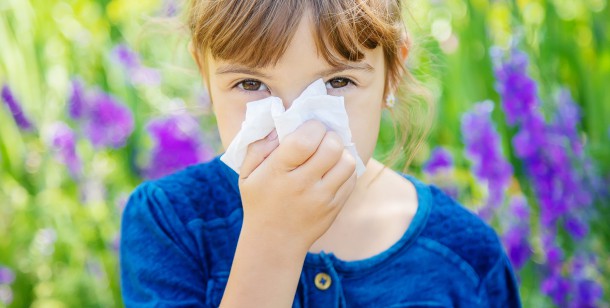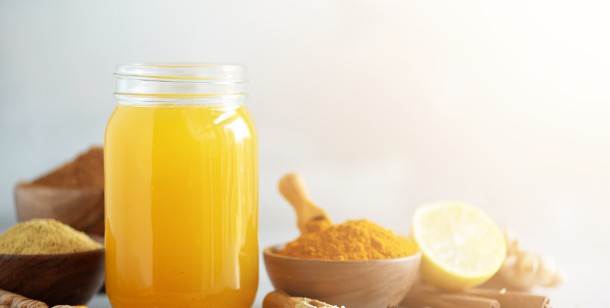For many people, seasonal allergies are the bane of their existence. No one wants to walk around with watery eyes, itchy skin, a runny nose, or a host of other symptoms that are associated with seasonal allergies. And while springtime is the most common season for people to experience allergies, sufferers can experience allergy problems all year long. Because treating seasonal allergies can prove difficult, many people look for supplements and vitamins to help combat the symptoms and improve their quality of life. Keep reading to learn the answer to “does vitamin C help with allergies?”

What Causes Seasonal Allergies?
Allergic reactions occur when your immune system reacts to a foreign substance like pet hair, food, or another irritant; for seasonal allergy sufferers, this usually means a substance like pollen or mold spores. Your immune response is the creation of antibodies that identify allergens as harmful, even if it isn’t, causing you to sneeze and cough to expel the substance. To put it plainly, allergy sufferers have immune systems that are a bit dramatic and prone to over-reacting.

What Is the Best Vitamin for Allergies?
A large number of allergy sufferers find that traditional methods for treating allergies — namely antihistamines and allergy shots — are too harsh, causing symptoms like drowsiness and dry skin. Consequently, people look to supplements and vitamins to help combat allergy symptoms. Here are some common vitamins and supplements for allergies:
Vitamin D
- Studies have shown that those with vitamin D deficiencies are more prone to developing allergies, so it is recommended to make sure that you take a multivitamin that provides it.
Quercetin
- This substance is found in red wine, grapefruit, apples, black tea, and other substances. Quercetin is beneficial for those with seasonal allergies because it has antioxidants and anti-inflammatory properties, which inhibits histamine release.
Peppermint Oil
- Peppermint oil is a wonderful treatment for chronic inflammatory illnesses, and can also be used to unclog sinuses and relieve scratchy throats.
Butterbur
- This anti-inflammatory herb has been shown to help relieve symptoms of seasonal allergies, specifically hay fever. It has even been shown to be equally as effective as Zyrtec, without the drowsy side-effects!
Vitamin C
- Vitamin C is extremely beneficial to people suffering from seasonal allergies. Vitamin C protects your cells from damage, reduces the severity of allergic reactions, and helps your body fight infections. It is also easily consumed in your diet through foods like kale, kiwis, broccoli, and citrus fruits.
Local Honey
- Studies have shown that people with substantial honey in their diets had less severe seasonal allergies. This is because honey is suspected to have trace amounts of bee pollen, allowing the consumer to become more tolerant over time.

Does Vitamin C Lower Histamine Levels?
The short answer is yes. Vitamin C is a natural antihistamine, which means it can lower histamine levels, inhibit histamine production, and lessen allergic reactions and symptoms! And because vitamin C is usually ingested through food or a dietary supplement, you don’t have to worry about the drowsy side-effects associated with traditional antihistamines.

Can Vitamin C Cause Allergies?
Technically, you can be allergic to virtually anything — some people even have allergic reactions to water! That being said, it is very uncommon for people to have an allergic reaction to injected vitamin C. Some people find that topically applied vitamin C in skincare products can cause irritation and allergic reactions, but that is not applicable when it comes to vitamin C supplements.
A common misconception that people have is that they are allergic to vitamin C when they are in fact allergic to citrus fruits like oranges. And because many citrus fruits are high in vitamin C and many supplements contain orange flavoring and derivatives, it is possible for such a person to have a reaction to these supplements. However, there are plenty of citrus-free ways to get vitamin C into your body to get relief from sneezing, itchy eyes, and other symptoms.
Potential Dangers of Vitamin C
Too much of anything is never good, no matter how beneficial it can be. Vitamin C has so many wonderful health benefits, but it’s important to be cautious. Some dangers of ingesting too much vitamin C are diarrhea, nausea, cramps, heartburn, and vomiting. If possible, only add supplements to your diet under the supervision of a physician; if not, take special care to follow the recommended dosage on the packaging.
Visit Village Emergency Centers
Seasonal allergies can be a pain, but Village Emergency Centers is here to help! If you still wonder, does vitamin C help with allergies, give us a call! Our experienced doctors are ready to provide expert guidance and care. Should you experience any severe allergic reactions, seasonal or otherwise, please do not hesitate to visit one of our convenient locations, including Jersey Village and League City, or any of our other centers across the Greater Houston area. Trust Village EC for compassionate, 24/7 emergency care.
